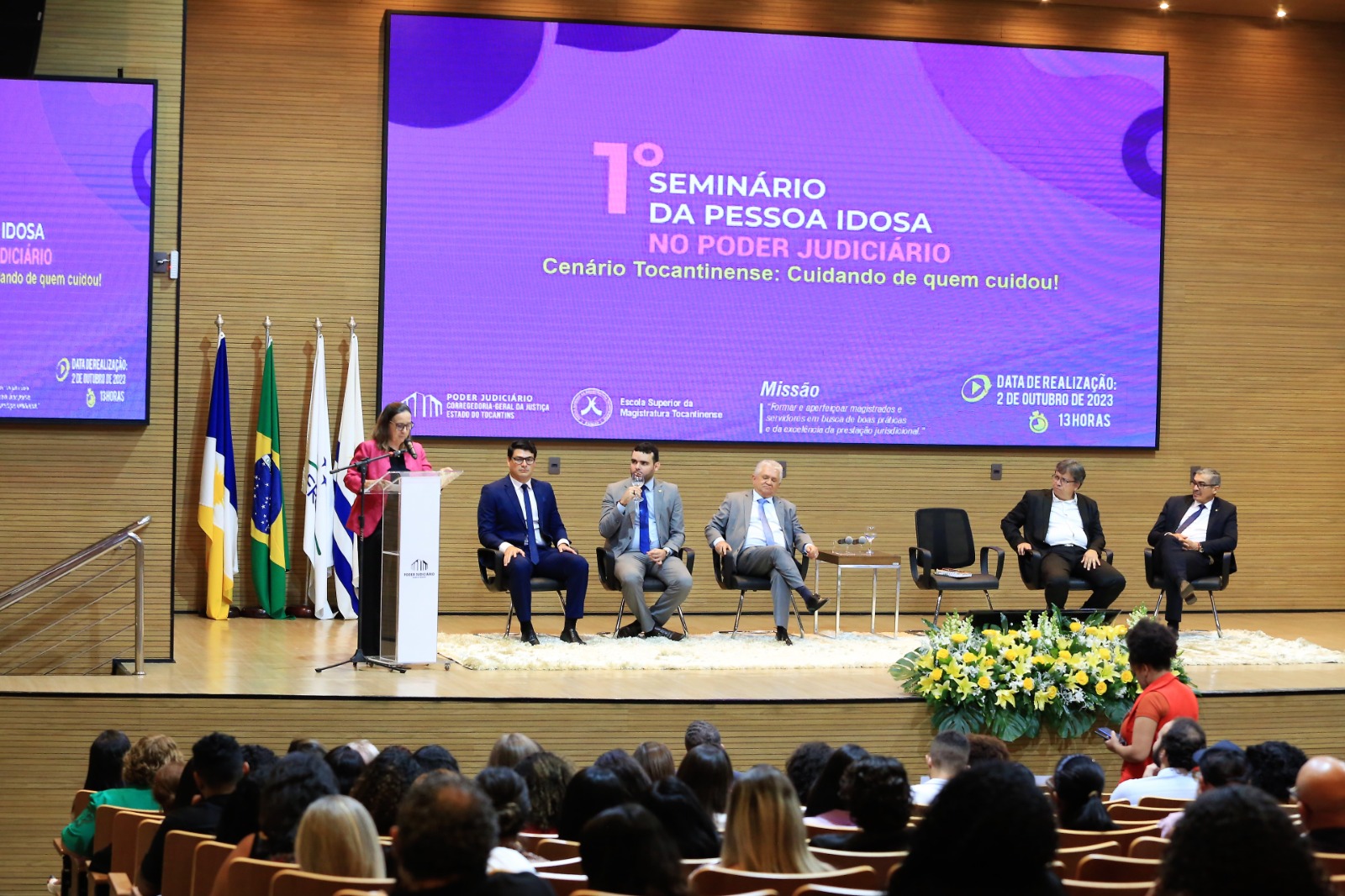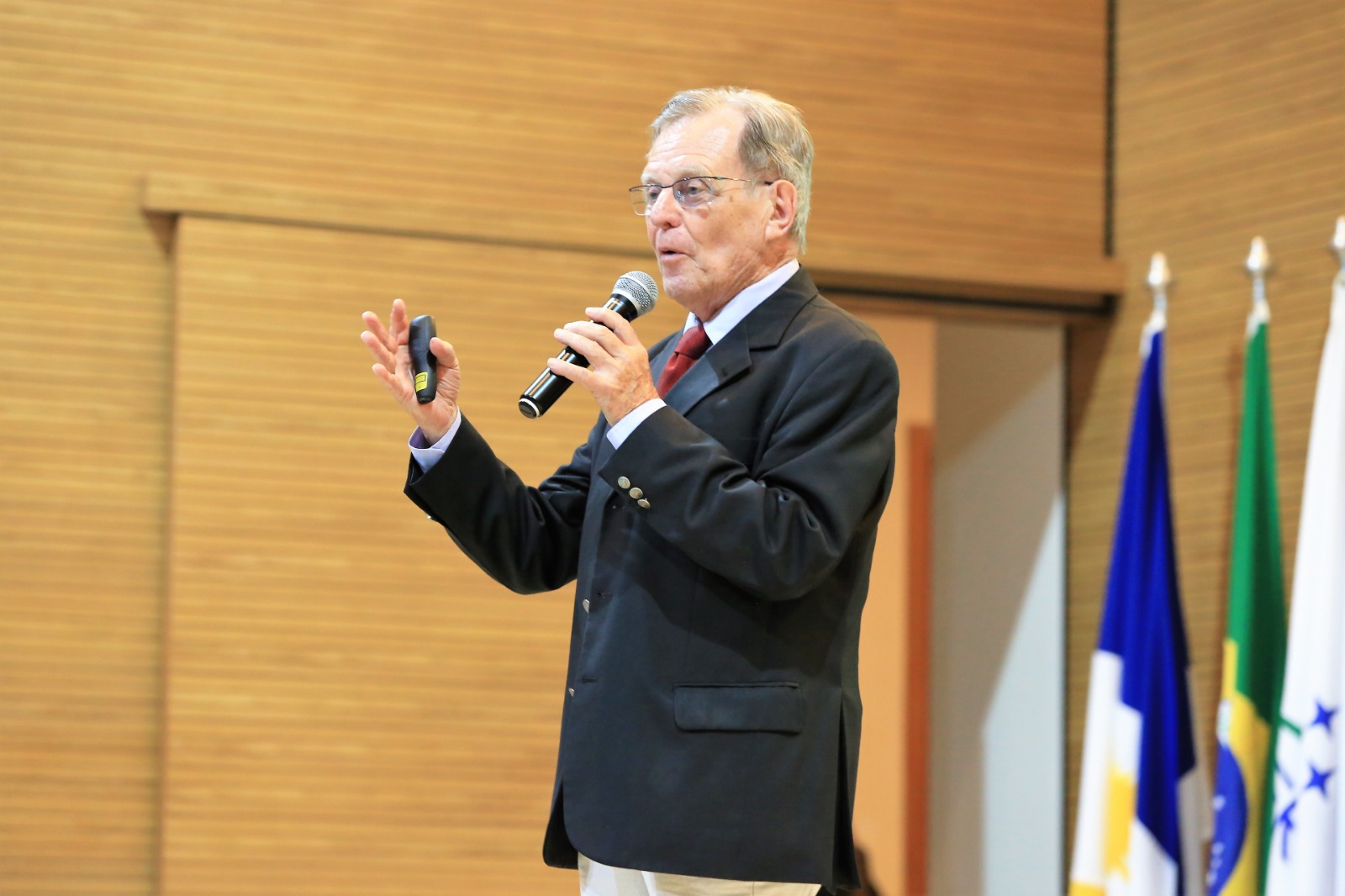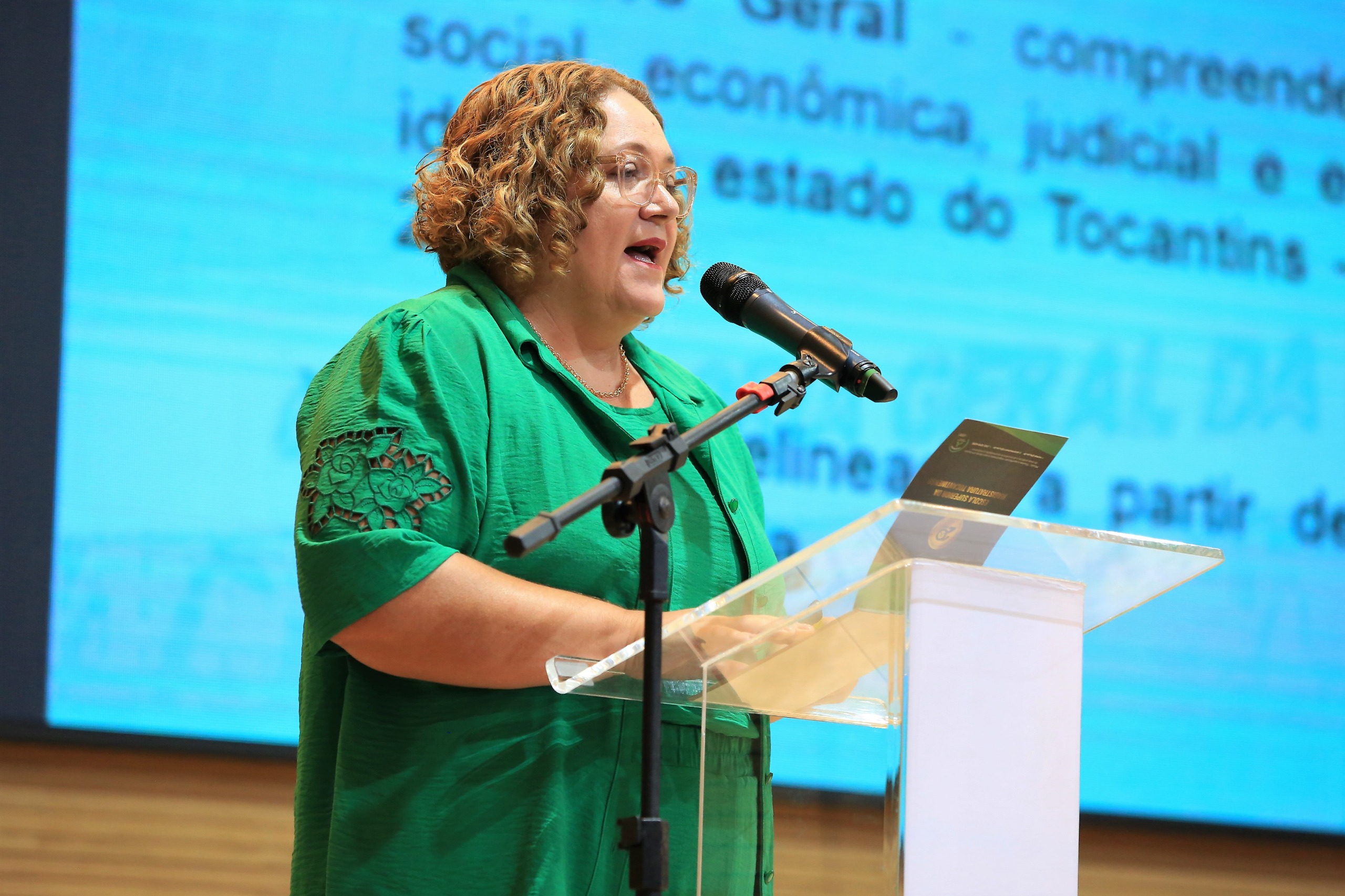
"Getting to know the reality of the elderly population in the state of Tocantins is a strategic action, provided for in our management plan, with the aim of guaranteeing accessibility, transparency and human rights," said Justice Maysa Vendramini Rosal, who opened the 1st Seminar on the Elderly in the Judiciary, on Monday afternoon (October 2nd), in the auditorium of the Court of Justice (TJTO).
"The General Internal Affairs of Justice is opening up this important space for dialog, the exchange of experiences and new knowledge so that, together, we can improve the way elderly people are treated in the State of Tocantins," she said. She recalled that all people should be treated fairly, as provided for in the Statute of the Elderly Person, which turned 20 this Sunday (October 1st).
Arióstenis Guimarães Vieira, Assistant Judge of the General Internal Affairs of Justice (CGJUS), who heads the Citizenship Coordination Office, reinforced the objective of the event of building an inter-institutional dialog in favor of the elderly.
Important Moment
Present at the event, the President of the National Council for the Rights of the Elderly (CNDPI), Raphael Franco Castelo Branco, who on the occasion represented the Ministry of Human Rights and Citizenship and the National Secretariat for the Rights of the Elderly, mentioned the important moment for Brazilian society. "In addition to the 20 years of the Statute (of the Elderly), we also have a great instrument of struggle, which will also be celebrating its anniversary in the next few days," he emphasized, mentioning the 35 years of the Federal Constitution, to be celebrated on the 5th of October. ,
"We need to understand ageing as a process of achievement. It's good that we're living longer! But it's not enough to live longer, we need to live better," he stressed, citing the challenge of providing healthy ageing, with dignity and empowerment.
The Coordinator of the University of Maturity (UMA/UFT), Luiz Sinésio Silva Neto, spoke about the role of the Federal University of the State of Tocantins in the debate on human ageing in the State. Silva Neto mentioned research and extension projects in the social area, such as postgraduate programs working on the subject of human ageing, like the one carried out in partnership with the Superior School of the Judges of the State of Tocantins (Esmat).
The Public Defender and Coordinator of the Applied Center for Minorities and Collective Actions in the city of Palmas, Neuton Jardim dos Santos, also took part in the opening ceremony of the event, which also included a cultural presentation by the UMA/UFT students.
Violence against the Elderly
Based on published research, Professor Vicente de Paula Faleiros brought to the event a discussion on "Violence against the elderly: results and analysis", the theme of the opening lecture of the seminar.

"These studies show the complexity of violence and its totality in social relations. It (violence) is not the isolated expression of anger, hatred, discontent or aggression, nor is it the sum of factors," said the Professor. "We need to go deeper into the structure of violence, the context in which it takes place and the interconnected social relations," he added.
According to the speaker, violence is the power of the strongest. "Violence is the expression of supremacy, of those who set themselves up as dominant and superior in order to humiliate others. The word supremacy shows the character of violence," he commented.
On the occasion, the professor spoke about the relationship between occurrences of violence and structural ageism; the complexity of violence; rights and citizenship; family relationships and violence according to research; power relationships and the risk of violence; occurrences of violence according to the Human Rights Hotline; victimized elderly people; the structuring of ageism; and the determinations of the legal political superstructure.
"Decolonizing old age means changing the narrative about old age," he said, commenting that a place of exclusion is also pedagogical. "We can have a future, a present and a past at all ages," he said, concluding that "inclusion is the culture that has to be defined.
Research
During the opening of the event, the final report of the research entitled "Reality of the elderly population in the State of Tocantins" was presented, in response to a request from the Citizenship Coordination Office of the General Internal Affairs of Justice. The aim of the research, carried out between 2018 and 2022, is to understand the demographic, social, economic, judicial and epidemiological reality of the elderly population in the State of Tocantins.

The data was presented by Juliana Pinto Corgozinho, a psychologist from the Management Group of Multidisciplinary Teams (GGEM/TJTO), who is technically responsible for the research.
The study maps the care, attention and protection networks for the elderly in the 139 municipalities of the State of Tocantins and presents a profile of the public living in the State, as well as an overview of violence against the elderly and the courts with the most records.
The study involved a team of 133 researchers accredited to GGEM in the 35 municipalities of the State of Tocantins.




